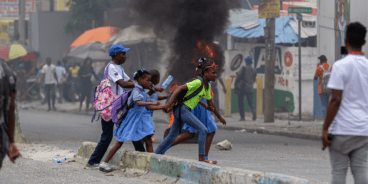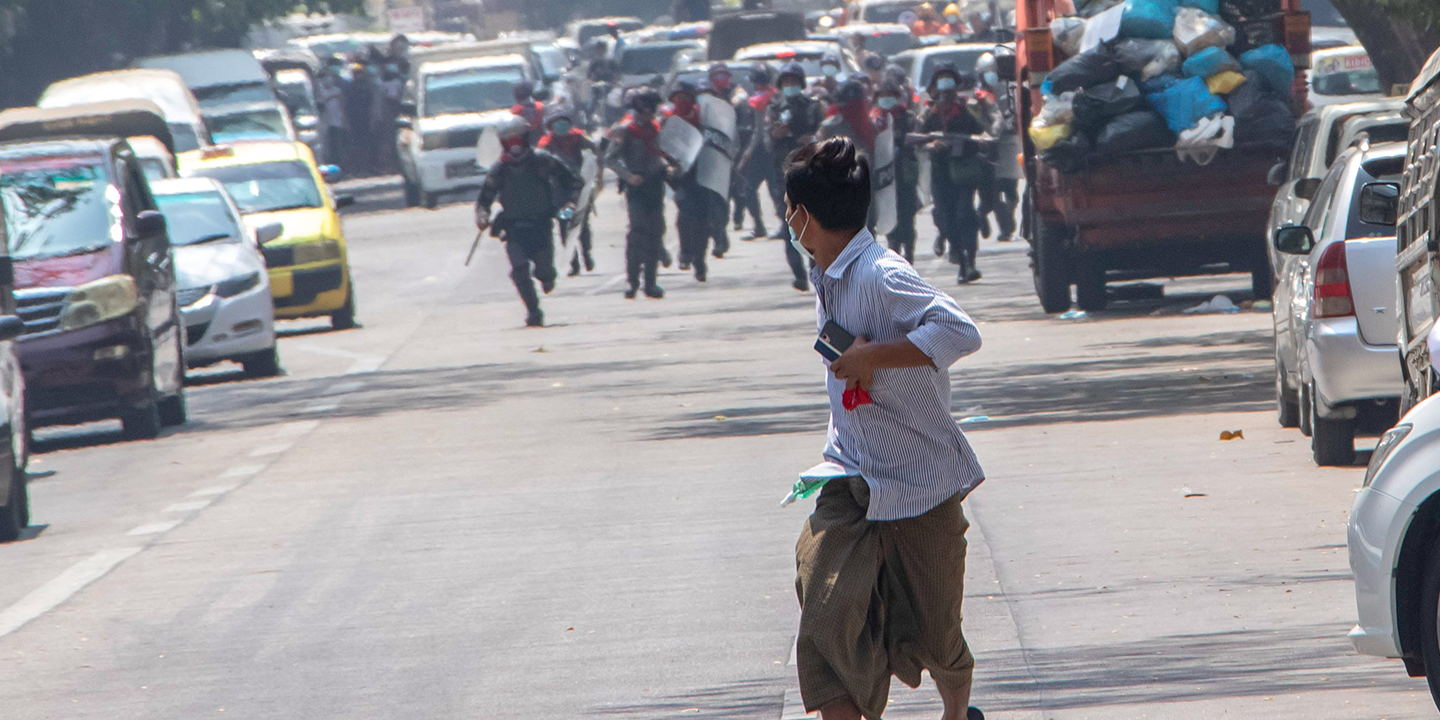

Atrocity Alert No. 254: Myanmar (Burma), Ethiopia and South Sudan
Atrocity Alert is a weekly publication by the Global Centre for the Responsibility to Protect highlighting situations where populations are at risk of, or are enduring, mass atrocity crimes.
ARMED RESISTANCE GROWS AS MYANMAR’S MILITARY CONTINUES TO COMMIT ATROCITIES
Since Friday, 21 May, Myanmar’s security forces have used heavy weaponry, including tanks and helicopters, against civilian areas of Kayah State as they attempt to repel civilian resistance fighters from the Karenni People’s Defense Force and members of the Karenni Army armed group. At least nine civilians have been killed in the state capital of Loikaw, including four people who were killed while sheltering in the Sacred Heart Catholic Church on 24 May when it was shelled by the military. Such attacks may constitute war crimes.
The fighting in Kayah State comes a week after violence escalated in Mindat, Chin State, where the military used helicopter gunships and heavy artillery against civilian fighters from the self-styled Chinland Defense Force. Across Myanmar, ethnic armed groups and a growing number of recently formed “self-defense groups” are trying to protect protesters from the security forces, who have killed over 820 people since 1 February for opposing military rule. On 23 May an attack by a local self-defense group on a police station in the eastern town of Mobye killed 13 members of the security forces.
Meanwhile, in an attempt to consolidate his power, the leader of the 1 February military coup, General Min Aung Hlaing, who will turn 65 in July, abolished the mandatory retirement age for senior military officers. On 21 May the junta-appointed Union Election Commission also announced their intention to dissolve Aung Sang Suu Kyi’s popular National League for Democracy, which won the general election last November with an overwhelming majority of votes.
Attacks on press freedom by the military junta also continue. Forty-nine journalists are currently being detained by the security forces, including an American journalist and managing editor of Frontier Myanmar, Danny Fenster, who was arrested at Yangon airport on 24 May as he attempted to leave the country. He has been transferred to Yangon’s notorious Insein Prison. A Japanese journalist, Yuki Kitazumi, who was arrested during April but was subsequently released following lobbying by the Japanese government, has said he witnessed abuse and torture at Insein.
“As the situation in Myanmar continues to deteriorate, the country is approaching a point of no return,” said Nadira Kourt, Program Manager at the Global Centre for the Responsibility to Protect. “The UN Security Council and the entire international community must impose punitive measures on the junta, including a global arms embargo. Otherwise, more civilians will lose their lives, armed conflict will intensify, and the democratic gains of the past decade will be completely lost.”
INCENDIARY WEAPONS REPORTEDLY USED AGAINST CIVILIANS IN TIGRAY, ETHIOPIA
Reports emerged earlier this week of the probable use of white phosphorus against civilians in Ethiopia. A video, reportedly smuggled out of the Tigray region and seen by the British newspaper, The Telegraph, shows victims – including a 13-year-old girl – covered in horrific burns as a result of attacks in Eastern and Central Tigray on 9 and 20 April.
The report also cited analysis from Hamish de Bretton-Gordon, a British chemical weapons expert, who indicated that the injuries suffered by Tigrayan civilians are similar to those witnessed in Syria, where white phosphorus has been used to set fire to towns and drive out civilians. Survivors of the attacks in Tigray testified that there had been no fighting in the vicinity of their homes prior to the use of incendiary weapons.
White phosphorus catches fire when exposed to air and burns at an extremely high temperature. When used as an incendiary weapon, white phosphorus causes horrific injuries as it burns through structures and people. While it is legal for militaries to utilize white phosphorus for illumination at night or to make a smoke screen, its use in civilian-populated areas is prohibited under International Humanitarian Law and may constitute a war crime.
Both Eritrean and Ethiopian armed forces are operating in Eastern and Central Tigray. Neither Ethiopia nor Eritrea are signatories to the Convention on Certain Conventional Weapons, which bans the use of indiscriminate munitions such as white phosphorus and landmines. These are, however, prohibited under the customary laws of war. The Ethiopian government has denied using incendiary weapons against civilians.
The commission of atrocities in Tigray cannot continue to go unpunished. While the 21 May announcement of the conviction of four soldiers in an Ethiopian court for crimes against humanity committed in Tigray is welcome, civilians continue to bear the brunt of the conflict. Global Centre Communications and Digital Media Officer, Sarah Hunter, said, “states should join the United States and European Union by imposing targeted sanctions and withholding all development aid until there is an end to the conflict, unfettered humanitarian access and meaningful progress towards accountability for war crimes and crimes against humanity committed against civilians in Tigray.”
DEADLY ATTACKS ON HUMANITARIAN WORKERS IN SOUTH SUDAN
Despite the 2018 Peace Agreement and the formation of a Transitional Government of National Unity, for the past year South Sudan has experienced a steady escalation in violence, including localized conflicts and civilian killings. In recent weeks there has also been an increase in attacks targeting humanitarian workers and assets.
On 21 May a local doctor working for the International Rescue Committee (IRC) was killed inside a health facility in Ganyliel Payam, Unity State. A humanitarian convoy, including an ambulance, was also attacked in Koch, Unity State. Ten days earlier, an aid worker was killed in Budi, Eastern Equatoria. During April, the UN Office for the Coordination of Humanitarian Affairs reported separate incidents in Torit, Eastern Equatoria, where youths physically assaulted staff from a UN agency and an NGO. The IRC also reported an attack on 24 April in the Ruweng Administrative Area, during which youths entered their compound and physically attacked staff.
In response to the recent attacks in Unity State, the UN Humanitarian Coordinator in South Sudan, Alain Noudéhou, said that, “I am appalled by this horrific news of another act of violence against humanitarians in South Sudan.” Noudéhou commented that, “humanitarians who are working hard to provide much-needed assistance to people in need must be respected and protected.”
At least 126 humanitarians have been killed since the civil war broke out in 2013, making South Sudan one of the most dangerous countries for aid workers. Approximately 8.3 million people, nearly 70 percent of South Sudan’s population, are currently in need of humanitarian assistance. An estimated 7.2 million people are also severely food insecure, including 1.4 million malnourished children.
The UN Security Council (UNSC) is scheduled to decide this month whether to extend South Sudan’s sanction regime, including the arms embargo. Due to delays in the implementation of the Peace Agreement, the UN Secretariat proposed a set of benchmarks to assess the efficacy of the current arms embargo on South Sudan. Many of the benchmarks – including the one on improving humanitarian access and addressing human rights violations – have not been met. As a result, lifting the arms embargo would be premature, with arms proliferation previously contributing to inter-communal violence and other atrocities.
The government of South Sudan must ensure the protection of humanitarian workers and facilitate their unhindered access to vulnerable populations. It should also thoroughly investigate recent attacks on humanitarian organizations and hold perpetrators accountable. The UNSC should closely monitor progress on achieving the proposed benchmarks and assist the South Sudanese authorities in upholding their responsibility to protect.
Related Content


Expert Voices on Atrocity Prevention Episode 43: Adama Dieng
